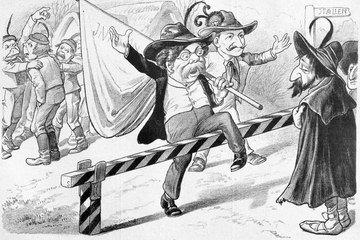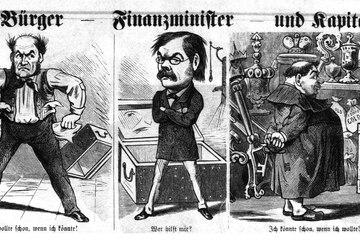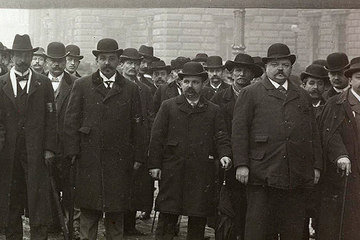Between a truce policy and left-wing radicalism
The outbreak of war in July 1914 put the Austrian labour movement in an ambivalent position. It basically supported peace, following the model of international socialism, but at the same time it was becoming a party of the establishment.







